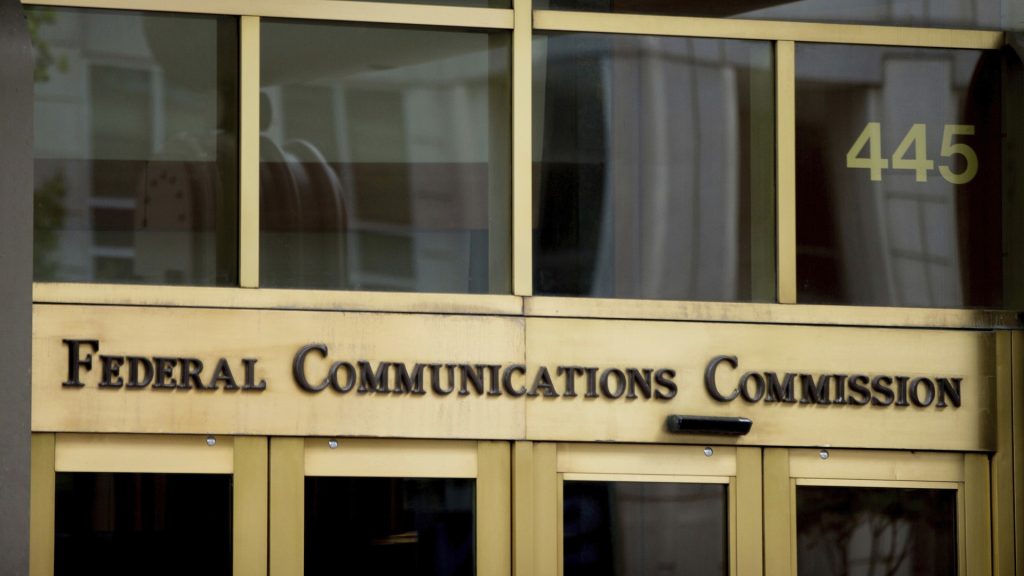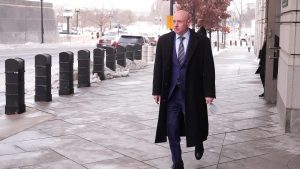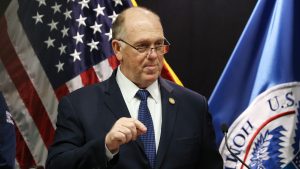Need for FCC regulation could fade as media landscape evolves: Media expert

The Federal Communications Commission is again at the center of a national debate over free speech, media bias and the public interest. Recent calls from President Donald Trump and conservative leaders urged the FCC to punish so-called “fake news” networks, while critics warn of potential overreach into editorial decisions.
From historical regulations like the Fairness Doctrine to prior administrations’ calls for stricter penalties, the agency has long walked a fine line between enforcing public-interest standards and respecting First Amendment protections.
A media law expert told Straight Arrow News that today’s rapidly changing media landscape could drastically reshape the FCC’s role in overseeing broadcasters.
What is the FCC?
David Oxenford, a broadcast and digital media law attorney and partner at Wilkinson Barker Knauer LLP, explained the long-standing history of the FCC.
“Since the 1930s, the FCC has had the authority to regulate broadcasters including some forms of content regulation,” he said.
The FCC was established in 1934, setting regulations and standards for radio, and later television broadcasters.
Oxenford added, “Prior to the ’80s, the FCC had some very strict requirements.”
This included the amount of time stations had to devote to news reporting and public affairs programming.
The Fairness Doctrine and deregulation
At that time, broadcasters were also subject to the Fairness Doctrine, the 1949 regulation requiring them to present controversial public issues in a fair and balanced manner and give equal airtime to opposing viewpoints.
“That was done away with 30 years ago because of the first amendment concerns. The FCC determined, ‘Hey, we can’t impose or enforce the Fairness Doctrine consistent with our statutory obligation to stay out of first amendment issues,” Oxenford said.
Republican President Ronald Reagan ushered in a deregulatory era in the 1980s. The Fairness Doctrine was repealed, broadcast ownership limits were loosened, and public interest requirements were eased — all in the name of free speech.
Oxenford noted, “There is a clear statutory requirement imposed by Congress that the FCC not abridge the free speech rights of broadcasters.”
Some semblance of those regulations still exist, such as requiring equal political advertising rates for politicians.
Public interest and broadcasting
Since that era of deregulation, some have questioned whether the rules and standards were eased too much.
“Since then, there’s been questions in time over whether there should be more specific requirements to meet needs of the community,” Oxenford said.
Broadcasters who hold FCC licenses must operate “in the public interest,” Oxenford said.
“I think there are questions about whether the public interest itself gives the FCC the authority to make up regulatory requirements that aren’t set out by Congress,” Oxenford said. “Throughout the FCC’s history, there have been attempts to determine exactly what is in the public interest for broadcasters who are generally supposed to meet the needs and interests of the communities they serve.”
Prior administration actions
Both Republican and Democratic administrations have examined the scope of the FCC’s regulatory power. In 2005, President Bush signed the Broadcast Decency Enforcement Act, legislation that increased FCC fines for obscenity and indecency broadcasted on public airwaves.
“I think one of the last times the FCC captured the public’s imagination was in some of the indecency regulations. The Janet Jackson incident during the Super Bowl,” Oxenford said.
That wardrobe malfunction directly coincided with Bush’s legislation.
He added that there have been more recent studies examining whether FCC regulations should expand in the name of public interest.
“In the first part of the Obama administration, there was a big study commissioned about the informational needs of communities,” Oxenford said. “A big study was done, a report was put out and then nothing happened because it’s so hard for the government to regulate what broadcasters should be doing consistent with the First Amendment.”
Radio stations for years had faced scrutiny over carrying conservative talk show host Rush Limbaugh. Celebrities and activists implored the FCC to punish radio stations for airing what Gloria Steinem, Jane Fonda and Robin Morgan referred to as “sexist, racist and homophobic hate speech.”
“If Clear Channel won’t clean up its airways, then surely it’s time for the public to ask the FCC a basic question,” the trio said in a 2012 CNN op-ed. “Are the stations carrying Limbaugh’s show in fact using their licenses ‘in the public interest?’”
Double-edged sword of regulation
Enforcing public interest without infringing on free speech remains a delicate balance.
“It’s hard to adopt general rules to determine what is and what isn’t in the public interest,” Oxenford said.
In the 1940s and 50s, radio and television were limited — scarce — and not everyone could broadcast. The FCC ruled that licensed broadcasters had a special responsibility to the public.
“There’s questions today about whether that scarcity doctrine still applies,” Oxenford said. “Broadcasting is no longer the single ubiquitous way that everyone gets their news and information. People don’t even have radios and open air TVs in their homes. Whether any content regulation still makes sense for broadcasters is an open question. And probably one the courts will be addressing in the years ahead. So I think a lot of the justification for regulation may over time disappear.”
The evolving media landscape — including cable, satellite, and digital platforms — is reshaping how people access news and information, prompting questions about the FCC’s role and the scope of its authority over broadcast content. But for now, the agency is still tasked with balancing how to enforce public-interest obligations while not infringing on First Amendment protections of broadcasters.
The post Need for FCC regulation could fade as media landscape evolves: Media expert appeared first on Straight Arrow News.





